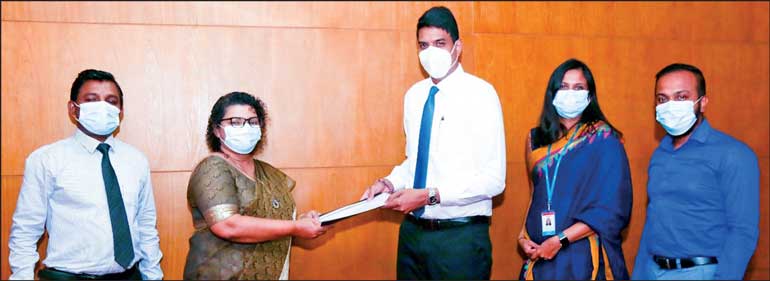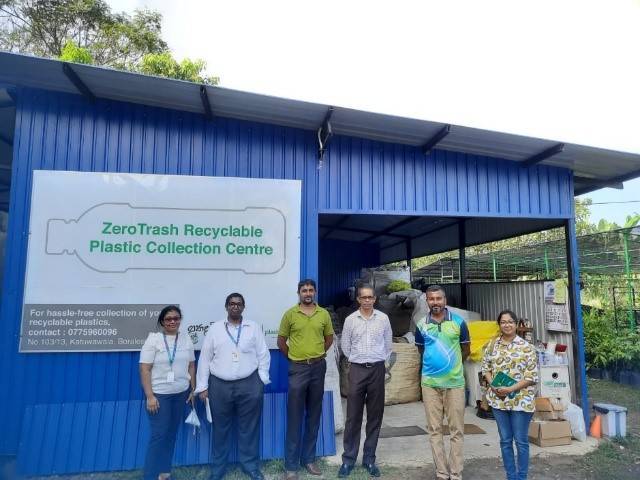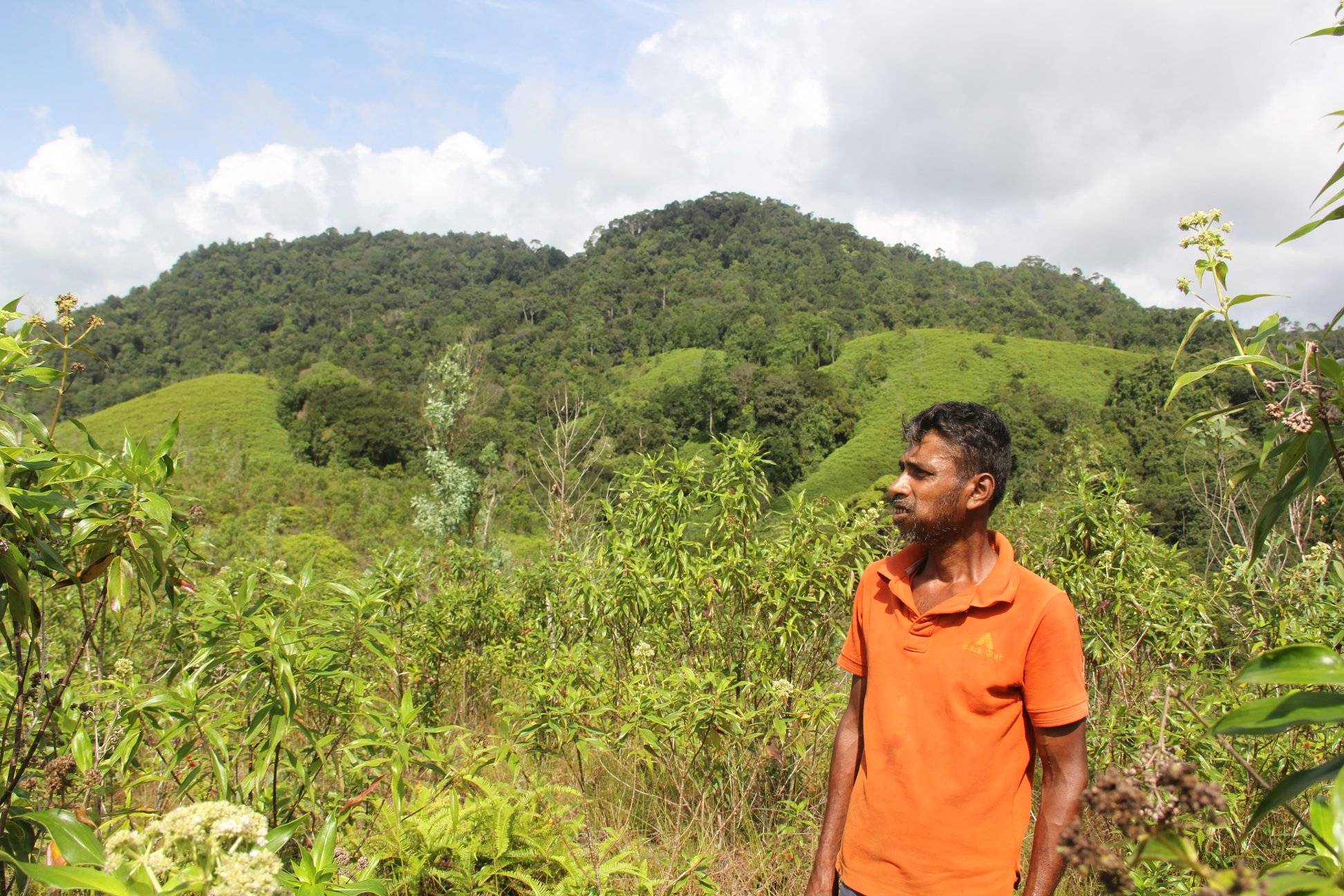
Hemas partners MEPA to address marine plastic pollution
Evergreen Shipping Agency Lanka Ltd., a joint venture between Hemas Transportation Ltd. and Evergreen Marine (Hong Kong) Ltd., has partnered with the Marine Environment Protection Authority (MEPA) to address marine pollution in Sri Lanka.
Evergreen Lanka has committed to the installation of an ‘Ocean Strainer’ floating trash trap at the Samanala Canal, Galle, and five ‘Beach Caretaker Projects’ across the country including Paranambala Beach and Luna Pokuna Beach. The partnership aligns with Hemas’ Environmental Agenda which strives to protect Sri Lankan Endemism through a three-prong action plan which includes responsible usage and disposal of plastic waste, safeguarding our ecosystem and protecting our natural resources.
Hemas Holdings Group CEO Kasturi Chellaraja Wilson said: “We are honoured to partner with MEPA in their efforts to ensure that we safeguard our marine ecosystem from plastic waste. As a part of the Group Environmental Agenda, we are committed to ensuring the reduction of the use of plastic that is harmful to the environment and the responsible disposal of plastic waste. This partnership is the first step in our efforts to reduce plastic pollution in our country by facilitating initiatives across the island to continuously collect community plastic waste disposed to the environment, while also working towards offsetting our plastic footprint.”
The beach caretaker program aims to keep the coastline clean through community-led conservation while empowering their livelihood, by providing caretakers with a reliable source of income. The initiative hopes to keep approximately five tons of plastic waste out of the ocean, assisting the conservation of Sri Lanka’s threatened and degraded
marine ecosystem.
“Sri Lanka is a nation that is rich in biodiversity and marine ecosystems, but unfortunately, this is under threat due to plastic pollution. As a responsible corporate that focuses on making healthful living happen across all communities we serve, we felt it is important that we play a role in ensuring the protection of our marine ecosystem. Clean and healthy oceans play a vital role in balancing ecosystems and water resources and mitigating the impacts of climate change. Through these initiatives we hope to reduce the plastic waste that enters the ocean and protect the marine ecosystem of Sri Lanka,” said Hemas Holdings Director – Mobility Sector Mushin Kitchilan.
With approximately 900 MT of plastic waste generated daily in Sri Lanka, the ‘Ocean Strainer’ floating trash trap will trap, collect, and remove plastic waste before it reaches the ocean. The Ocean Strainer floating trash trap initiative was conceptualised and developed by MAS Holdings, with the installation of the first Ocean Strainer in the Dehiwala Canal in August 2020. In its first year since installation, this floating trash trap has managed to keep approximately 67,000 kilograms of plastic waste away from the ocean. Believing in the power of open innovation and collaboration in problem-solving, MAS announced in early 2021 that they would make the Ocean Strainer technology openly available to interested parties, in order to replicate and scale up the solution.

The Application Of Extended Producer Responsibility (EPR) Instruments To Manage Plastic Waste In Sri Lanka
On the invitation of the Central Environmental Authority (CEA), the Ceylon Chamber of Commerce (CCC) and BSL took part in a meeting to discuss the implementation of EPR for Plastic Waste management on January 6, 2021, at the CEA. The main purpose of this dialogue was to examine the pros and cons of two major EPR instruments: Product Take-back Requirement and Deposit Refund System. The Managing Director, Snackings (Pvt) Ltd shared a proposed Digital Deposit Refund System (DRS). As per the system proposed, PET bottles will carry a QR Code and consumers will be able to obtain a refund by handing over the used bottle to nominated outlets. For the return of these bottles, it is proposed to set up 5,000 outlets throughout the country. The consumers can return the bottles to these outlets and obtain a refund of LKR 10/-. On top of that, an EPR fee will be levied from brand owners to set up and maintain the system. During this discussion, it was emphasized that the country should focus on bottle-to-bottle recycling as it happens in other countries.
Mr. Chandrarathna Vithanage, Senior Assistant Secretary-General, CCC explained that CCC has facilitated the EPR dialogue for over 3 years and come up with the EPR Roadmap, proposing a Mandatory Reporting and Collect Back model which will assign a collect back target to brand owners based on their annual packaging consumption. The development of this EPR Roadmap was done adopting a broad, consultative process. CCC also conducted a Perception Survey on EPR through which, it was revealed that over 90% of the private sector stakeholders are in favour of this model and expressed willingness to implement it. He pointed out that plastic waste is an issue of national importance, and therefore it must be tackled diligently keeping national interests for environmental conservation in mind.
Mr. Roshan Salinda, Program Manager, BSL commended positive elements of DRS and acknowledged that DRS has delivered laudable results in raising PET collection and recovery rates in developed countries such as Germany, Norway, Denmark, and Lithuania. However, he pointed out that in no developing country where informal waste collection systems exist, has introduced DRS for PET packaging. When DRS is introduced, valuable waste items like PET, Aluminium cans, and glass will also get collected through the system, affecting the livelihoods of thousands of informal waste collectors, as PET contributes to a sizable portion of the income of informal waste collectors. Also, Sri Lanka’s socio-economic dynamics are not conducive for introducing DRS. As such, since Sri Lanka has a very active waste collection sector, DRS would unlikely be the best EPR model for the country. Citing an OECD report, he mentioned that Product Take Back requirements are the most dominant EPR tool used in the world. Sri Lanka can draw lessons from proposed EPR regulations in India. The main elements of Indian EPR regulations are mandatory registration of producers and recyclers, and targets for plastic waste collection, recycling, and the use of recycled content in packaging. He concluded that introducing DRS would have to be discussed widely with the private sector, as the Collect Back Model is currently being operationalized in the country with private sector agreement.
BSL and CCC teams visited SME member Zero Trash, General Member Eco Spindles to gather further information on the collection and recycling of plastic waste.
The 3rd Project Steering Committee meeting of the CCBO-CCC EPR Pilot Project was held recently under the leadership of the Secretary of the Ministry of Environment and the CEO/Secretary General of the CCC

BSL Hosts “Beyond Borders” in Association With GIZ and DWC
A webinar was held on 27th January 2022, to showcase successful private sector-led efforts in contributing towards protecting critically important ecosystems through a livelihood-centered approach in the Wilpattu National Park’s (WNP) influence zone. The event focused on lessons learned and best practices implemented by the supporting WNP and influence zone management project in Sri Lanka.
Biodiversity Sri Lanka (BSL) was hired by GOPA Worldwide Consultants to co-ordinate private sector investments in connection with the activities falling under outputs c) and d) of the Project, namely, the local population in the park’s influence zone has better access to alternative, resource-friendly income-generating opportunities outside conventional agriculture and the use of the national park as a communication instrument for the purpose of raising environmental awareness and promoting peaceful co-existence has improved.
At the outset, two keynote addresses were delivered by Mr. Sharada Sosa, Director, Forbes & Walker Fine Foods (Pvt.) Ltd. and Ms. Shamodi Nanayakkara, Manager, Dilmah Conservation, on the topics ‘The Story of Cashew: Farmers, Middlemen, and Escapeways’ and ‘Women-led Community Skills Development in the Influence Zones of High Conservation Value Forests’ respectively. Session II was a panel discussion, featuring a diverse array of eminent panelists representing the business sector, science and conservation education, and academia and included Dr. Anura Indrajith, Department of Applied Entomology, University of Rajarata, Ms. Chandani Wilson – Deputy Director Visitor Services Management, Department of Wildlife Conservation, Mr. L. P. D. Dayananda – Consultant/Agricultural and Business Development Specialist of BSL, and Mr. Nirmal Hettiarachchi – Technical Head, Fresh Produce of John Keells PLC. The discussion was based on innovative business actions and approaches, income-generating business solutions, linkages between policy and legislative frameworks, and focused on successes and challenges.
More than 80 participants attended this very informative session, which provided many insights on involving the private sector in protected area management in the country. Despite the multitude of challenges faced, overall, the Project successfully implemented its ground-level activities. One of the biggest challenges was Covid19 related restrictions. One of the other challenges was the relatively short time span available for the implementation phase, which provided very limited time and opportunity for BSL to build a strong rapport with the private companies and the target communities. However, BSL by undertaking back-to-back field visits and through its field coordinator managed to interact with the target groups closely and openly forging many interesting private sector linkages.
The project concluded with the observation that potential exists for mutually beneficial buyback programs for agricultural produce via location-based associations/small informal groups and/or through lead farmers, and interested private sector, lending sustainability and marketing independent of middlemen. There is a need to continue a similar momentum at least for another year to forge stronger links with the farmers and the private sector, to derive effective mutual benefits and wean farmers away from encroaching further into the influence zone of the park.

BSL collaborates with UNDP and CEJ in designing a digital citizen engagement platform for reporting illegal environmental activities
The proposed project idea is a digital citizen engagement tool, which aims to connect citizens wishing to report unsanctioned environmental activities to government officials. The project will be in two phases – Phase 1, focusing on illegal deforestation and logging activities only, in collaboration with the Forest Department and Phase 2 – scaling up to include other illegal environmental practices, such as illegal wildlife poaching and trade and illicit activities contributing to wetland degradation, in collaboration with the Department of Wildlife Conservation, the Customs Department, and other relevant government institutions.
The tool will facilitate a two-way portal, whereby citizens can take the initiative to report against harmful environmental practices and contribute towards crowdsourcing data on this. The tool will also allow citizens to track whether their complaint has been resolved. Officials will be able to obtain the information required to address such concerns and be able to use the record and inform other officials of complaints and issues that come to their attention via offline methods.
A preliminary meeting of the technical experts’ committee was held in January at the Ministry of Wildlife and Forest Conservation. Members of the committee representing various Government, Private Sector, and Civil Society institutions emphasized the need for a user-friendly solution, and the need to establish clear parameters for the pilot and subsequent phases of the proposed intervention. The meeting was chaired by Mr Ratnayake, Additional Secretary (Technical) of the Ministry of Wildlife and Forest Conservation.







